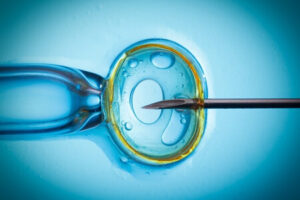 In recent times, many couples have longed for a child but failed to have one due to infertility issues. While the infertility rate is on the rise, most people are willing to undergo the fertility treatment process of IVF. Embryo transfer is one of the stressful milestones in the journey of fertility treatment.
In recent times, many couples have longed for a child but failed to have one due to infertility issues. While the infertility rate is on the rise, most people are willing to undergo the fertility treatment process of IVF. Embryo transfer is one of the stressful milestones in the journey of fertility treatment.
IVF opens the way for you to experience parenthood. The advice of experts can answer your queries about what to do before and after embryo transfer and help increase the success rate.
Before Embryo Transfer
-
Consider Blastocyst Transfer
Usually, after the embryos are cultured in the lab for three to seven days, it is then transferred to the uterus of the intended mother. Blastocysts refer to embryos that have undergone at least five days of development. Transferring the blastocysts gives more time for embryo quality monitoring, thereby increasing the chances of success.
-
Consider Embryo Screening
Embryo screening helps eliminate the causes of implantation failure. The genetic testing of the embryo helps in ensuring the transfer of the most viable embryos and improves the chances of success.
-
Consider Supplementation
You can consult your doctor about the potential supplementation options. Hormone supplementation can help in creating the ideal environment for the embryo and increase the chances of success of the process.
After Embryo Transfer
After embryo transfer, precautions must be taken to ensure a high success rate. The precautions include:
-
Avoid Stress
Even though the two weeks after the embryo transfer is the most stressful period, try avoiding stress for positive outcomes. Sit back, relax, and laugh as much as you can. Remaining stress-free and happy works best to make the process a successful one.
-
Take Medicine Regularly
Make sure not to skip a single medicine that has been prescribed to you by the embryo transfer hospital. Medicines are effective in creating the right environment in the uterus and keeping the embryo alive. Take the medicines on time regularly and complete the dose.
-
Take Rest
Taking rest here does not mean complete bed rest. Complete bed rest may worsen the situation after embryo transfer. Instead, consider taking plenty of sleep and taking good care of yourself. You can even continue with your daily schedule, but make sure to listen to your body and work accordingly.
-
Avoid Vigorous Exercise
Even if you are allowed to carry out your daily activities, make sure to avoid vigorous exercise. Lifting heavy weights is also not advisable.
-
Avoid Extreme Temperature
Avoiding heat completely is a must. Heat can raise the uterus’s temperature, affecting the process’s success. Hot yoga, hot baths, sauna, or others that are likely to expose you to high temperatures are strictly to be avoided after the embryo transfer process.
-
Lean on your Support System
You may experience anxiety during this phase. Consider turning up to your loved ones and getting their support to avoid stress.
Following the tips mentioned above can increase the chances of a successful pregnancy. You can get an idea about Embryo Transfer Costs from a nearby IVF Centre.



